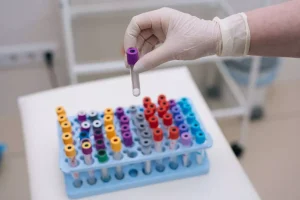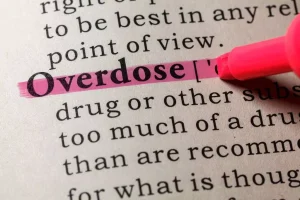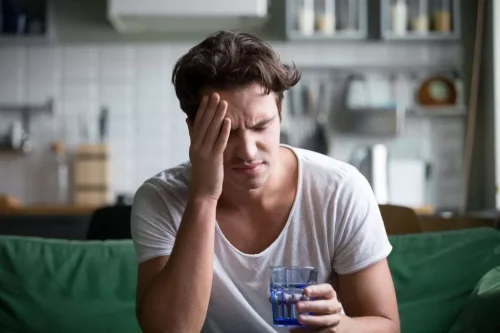
The number of drinks you have, what you are drinking, and what’s going on in your life may be the primary culprits, rather than alcohol itself. Beer and headaches need to be regulated before it becomes a nightmare. There is no substantial scientific evidence about any substance that is effective in curing a hangover. The easiest way to determine this is to test yourself under controlled conditions. Drink a glass of beer and wait for 30 minutes to 3 hours to gauge its effect on your body. Generally speaking, five to eight drinks are enough for an average man, while women can consume somewhere around three to five drinks.
Types of Headaches From Drinking
Reducing or eliminating alcohol may reduce the frequency of migraine attacks. It may also help eliminate triggers that tend to co-occur with drinking, such as dehydration and sleep deprivation. If you love drinking beer but regular migraine attacks or headaches are a fact of your life, it’s worth weighing the pros and cons. Analyze your personal risk carefully, remembering that triggers are often additive.
Can I get a headache from drinking non-alcoholic beer?
There is no current consensus on how cognition differs in different migraine phases or forms. If you’re prone to migraine attacks, it’s wise to avoid alcoholic beverages altogether. However, if you do drink, be sure to do so in moderation and stay hydrated. Some common symptoms are a severe headache, vertigo attack or stroke like symptoms that can last for hours or even days.
How Alcohol Triggers Headaches
People with migraine are more likely to have this type of reaction to migraine than those without. The few experimental studies indicate that the highest congener beverage (bourbon) results in more severe hangover ratings than does the beverage with essentially no congeners (vodka). These congeners tend to affect https://ecosoberhouse.com/ how people feel the next day, including contributing to increased levels of hangover symptoms.
Top doctors in ,

Drinks that include electrolytes, such as sports drinks, can help replace the electrolytes you lose from the diuretic effects of alcohol. Learning more about your specific health history and drinking habits can help you better understand your risk of alcohol-induced headaches. At Monument, you can speak with a specialized physician, like myself, to get personalized information and care.

The type of alcohol consumed may also be a factor, with red wine, white wine, champagne, and beer ranking as the most common triggers among alcoholic beverages. Comparisons between CM and EM are limited and incongruous, often confounded by contradictory evidence on whether EM patients differ from HCs. Migraine frequency and severity likely contribute to this discrepancy.
- When your body gets out of balance, a migraine attack is more likely to occur.
- Furthermore, cognitive functioning can also include social cognition, such as the ability to understand social cues and interact with others 8.
- However, bottled beers score more on portability and hygiene than draft beers.
These include the individual’s sensitivity to specific ingredients or compounds in beer, personal triggers, alcohol content, hydration levels, and overall health. Every individual’s experience with migraines is unique, and it is essential to pay attention to your body’s responses and adapt your choices accordingly. Although any type of alcohol can trigger a migraine, people who experience regular migraine attacks cite red wine as the most frequent culprit. Whether alcohol acts as a trigger is really a case-by-case basis for people with migraine. For some people, it could be the amount of alcohol consumed that triggers an attack. For example, wine may be a trigger for some but whiskey may not have an influence.

This article will explore the relationship between alcohol and headache and consider why some people develop an alcohol headache after one drink. It can be hard to narrow down a single cause of a headache after drinking, and some attacks just happen beer and migraines without a clear cause. Most studies show that alcohol doesn’t have a consistent effect on those with migraine or tension headaches, but individual results will vary. Those who live with cluster headaches, on the other hand, often find they have a higher sensitivity to alcohol-induced headaches.
- An improvement in MIDAS was also observed; nonetheless, the change was not statistically significant 31.
- We also examine the types of headache alcohol can trigger and the types of alcohol likely to cause more headaches.
- This Diagnosis & Treatment page walks you through next steps after a diagnosis.
- 2021 research also linked lifestyle factors with alcohol drinking and smoking to cluster headaches and their severity.
- Although, as we’ll discuss below, there are other factors that can lead to headaches no matter what form of alcohol you consume.
How can you prevent getting a migraine headache from alcohol?
- Unfortunately, this may lead to inflammation throughout the body, which can trigger migraines in some people.
- With all that said and done, light exercise and staying hydrated are the best options that do not have any unwanted side effects.
- It can’t prevent a migraine, but it can help stop one after it starts.
- Much like food triggers for migraine, people may have a higher sensitivity to certain organic components commonly found in alcoholic drinks.
- To understand more about the symptoms experienced with migraine attacks, read our articles on vestibular migraine or different types of headaches.
However, there is no additional evidence assessing performance relative to EM patients 80, 81, 83. Thus, while some evidence supports impaired memory in CM, variability in studies conducted to date precludes definitive conclusions. Many measures of cognitive ability use subjective Sober living home examination; however, the use of objective measures has the potential to identify possible biomarkers of cognitive impairment in migraine patients. Magnetic resonance imaging (MRI) and electroencephalography (EEG) are commonly used in clinical settings and research, especially when assessing neurological pathologies.
